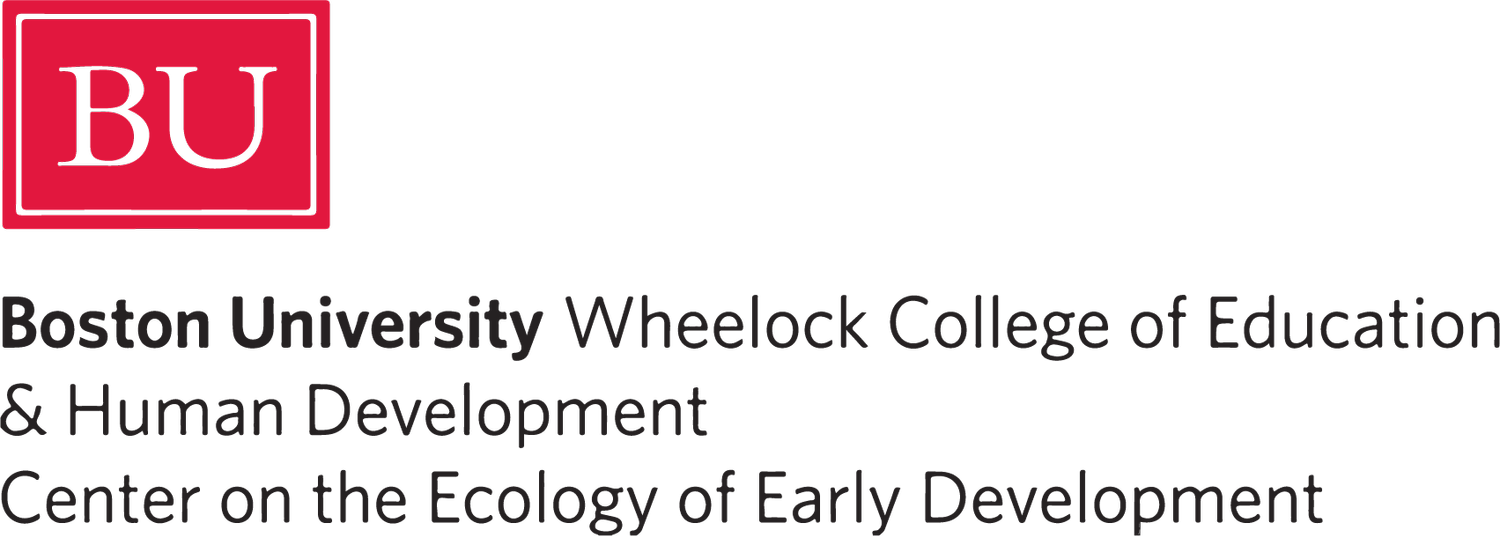Education for Self-Actualization
Researchers at CEED, in partnership with colleagues from other universities and organizations, are working to transform the education experience of Black children by conducting research that is focused on anti-racist professional development for educators and practitioners, the development of measures of equitable classroom instruction, and how non-traditional education pedagogies (e.g., Montessori, African-centered) are related to school success and wellbeing.
Boston University - Multnomah County Preschool for All Research and Evaluation Partnership
A Note from the Principal Investigator:
Hello,
Welcome to the informational page for the Multnomah County Preschool for All (PFA) Evaluation. I am Dr. Stephanie M. Curenton, the Principal Investigator for this project. My research team at Boston University’s Center on the Ecology of Early Development (CEED) is working closely with Multnomah County Preschool for All. We are studying the program to help learn about the perspectives and experiences of community members, preschool providers, families and children using a racial equity framework. Thank you for your interest in the study. To learn more, visit our Frequently Asked Questions section below or contact us at ceed@bu.edu. We look forward to sharing our findings with you.
- Stephanie M. Curenton
Frequently Asked Questions:
-
The Center on the Ecology of Early Development (CEED) at Boston University has received a generous grant from the W. K. Kellogg Foundation to partner with Multnomah County Preschool for All.
-
The initial phase of the project is for two years, but we hope to extend the work in the future.
-
Boston University CEED is working in partnership with Multnomah County Preschool for All to help them:
1) better understand teacher-child classroom interactions across sites using a new classroom quality tool called Assessing Classroom Sociocultural Equity Scale (ACSES);
2) support and study how racial equity is being centered in program design and delivery; and
3) plan for future research and evaluation needs. (Click here to sign up to learn more about ACSES.)
-
Families will be invited to participate in surveys and focus groups. Families will also be asked to provide permission for their children to be observed during regular classroom activities. The information collected through these observations will be used to help teachers best support the children in their classrooms.
-
Providers will be invited to participate in surveys and focus groups. They will also be asked to have regular classroom activities observed to better understand activities in PFA classrooms. The information from the observations will also be used to help teachers best support children in their classrooms.
-
Please contact the CEED research team at ceed@bu.edu. You can also contact the Multnomah County evaluation team at PreschoolforAll@multco.us or visit www.multco.us/preschool.
The Research Team
Stephanie Curenton, Ph.D. Principal Investigator
Kyle DeMeo Cook, Ph.D.
Project Director
Sara Moran, M.P.P.
Researcher
Daphne Babrow, Ph.D.
Community of Practice Lead
Olivia Nazaire, B.A.
Researcher
Divine Mupenda, B.S.
Researcher
Desiree' DuBoise
Local Data Collector
Gigi Medina
Bilingual Data Collector
Ebony McQueen
Researcher
News and Resources
Mapping Early Care and Education Providers in Multnomah County
To support the early implementation of Preschool for All, one of CEED’s Year One activities was to create maps that show where all 2022-2023 PFA pilot sites in Multnomah County, Oregon were located. The series of maps also shows other public preschool funding sources in the county and overlays the sites with other demographic data such as the population of young children, and income and race/ethnicity of residents.
Op - Ed by Stephanie Curenton: Praise for Preschool for All’s commitment to equity
The team's principal investigator, Dr. Stephanie Curenton, shares her view on this partnership and on the work done by Preschool for All in this piece published in the Portland Tribune.
BU Wheelock Magazine: Shaking Up the System
In this article, the CEED-Multnomah Partnership is listed as one example of research transforming an entire education system.
Project Overviews
English
Spanish
Briefs
The ACSES Measure
The Assessing Classroom Sociocultural Equity Scale (ACSES) is a reliable and valid assessment designed to improve bidirectional interactions between teachers and children as well as children’s peer-to peer interactions within early childhood classrooms environments. The goal of this measure is to assess classroom interactions, in order to incorporate the cultural knowledge, experiences, and diverse learning and communication styles of racially minoritized learners into classroom teachings by:
acknowledging, challenging, and rejecting racism, sexism, classism, and other forms of oppression;
emphasizing and actively engaging in issues focused on social justice, democracy, and human rights;
striving for an equitable distribution of power and participation between teachers and children.
If you're interested in learning how you can use the ACSES tool in your school, send us an email at ceed@bu.edu!
ACSES Resources:
Playful Learning Institute
CEED has partnered with NORC at the University of Chicago, on a contract from the Massachusetts Department of Elementary and Secondary Education (DESE) to evaluate their Playful Learning Institute (PLI).
PLI is a pilot initiative in 2023-2024 to expand playful learning practices in prekindergarten through third grade classrooms in Massachusetts. Five school districts across the state are participating in the institute which includes asynchronous online training, in-person professional development and regular coaching. The CEED and NORC evaluation team is working closely with DESE to evaluate the initiative with a focus on understanding how playful learning supports equitable learning experiences in the early grades and how the PLI can help shift mindsets and increase playful learning practices. Research activities include: baseline surveys prior to the institute and surveys at the end of the institute year for teachers, administrators and staff; focus groups for teachers, administrators, staff, and coaches; reviews of coaching logs; and classroom observations.
The Montessori Study
Montessori education is a student-led, self-paced but guided method that uses strategic and purposely created materials for students to learn content.
Montessori Resources:
Child Trends Report on Equitable Access to Montessori:
Enrollment practices can hinder equitable access to public Montessori pre-k programs.
Montessori Conference 2021:











